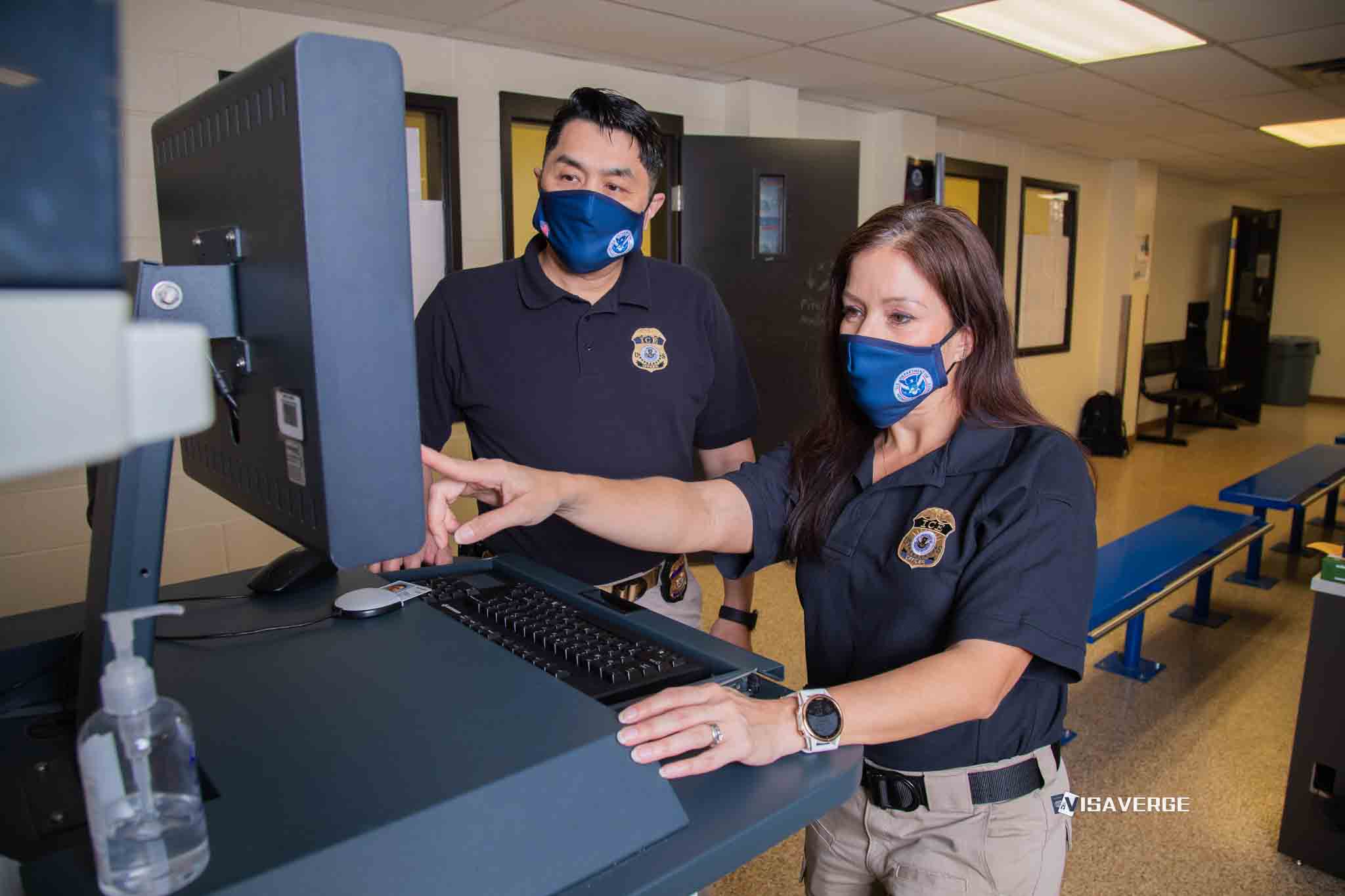On August 9, 2025, a group of lawmakers led by Rep. Dan Goldman, Sen. Elizabeth Warren, Sen. Alex Padilla, Sen. Mark Kelly, and Rep. Lou Correa demanded urgent probes into ICE’s detention of U.S. citizens. They asked DHS Secretary Alejandro Mayorkas for detailed answers and records by early September.
The request follows a spike in reported cases this year where citizens were arrested or held during large enforcement actions. Lawmakers want data, policy clarity, and accountability.

What’s new and why it matters
- Formal congressional demand (Aug. 9, 2025): Members of Congress sent a letter to DHS seeking a full investigation into ICE’s arrest, detention, and deportation of U.S. citizens. They set a deadline of September 5, 2025 for a DHS response.
- The letter presses DHS to explain:
- how agents verify citizenship,
- how databases are maintained,
- what training agents receive, and
- what oversight prevents wrongful detention.
- As of July 27, 2025, ICE is holding 56,945 people, and 71.1% have no criminal conviction. The exact number of citizens detained in 2025 remains undisclosed—one of Congress’s core questions.
What lawmakers want from DHS and ICE
According to the letter signed by Correa, Goldman, Warren, Padilla, Kelly, and colleagues, DHS must provide:
- Numbers for 2025: How many U.S. citizens were stopped, arrested, detained, or deported.
- Policy documents: ICE’s current rules and guidance for checking citizenship before an arrest or detention.
- Training and oversight: How agents are trained and supervised to prevent wrongful detention.
- Database fixes: Steps taken to correct and update citizenship records in ICE systems.
Lawmakers also ask DHS to make verification procedures clear to the public so people know how a claim of citizenship is handled in the field.
ICE’s internal steps — and open questions
- In February 2025, ICE reminded field offices to update citizenship data in agency databases.
- It is unclear whether those reminders led to real changes in practice or results.
- As of August, DHS and ICE have not publicly addressed the new congressional letter.
- ICE’s recent statements focus on enforcement priorities and public safety, not on wrongful detention.
Background: A decade-long problem
For more than ten years, media reports and lawsuits have documented cases where U.S. citizens were detained or even placed in deportation proceedings before officials confirmed their status.
Past government reviews point to:
– Weak training for frontline agents.
– Gaps and errors in databases.
– Limited checks before detaining a person who says they are a citizen.
In 2025, reports of citizens caught up in broad enforcement actions add pressure on Washington to act. Advocacy groups say some citizens were held for days or weeks before release.
What’s at stake for people and families
Wrongful detention harms people in direct and personal ways:
- Civil rights risks: Detaining a citizen raises serious due process and equal protection concerns under the Constitution.
- Life impact: People can lose jobs, face family stress, and suffer trauma. The process to clear their name is often slow and confusing.
- Financial costs: Families may spend savings on legal help or travel, and miss work while they try to fix official records.
VisaVerge.com reports that the combined pressure from Congress, civil rights lawyers, and local media tends to drive faster policy review when cases multiply in a short period. That matches this year’s pattern.
Key players — and where they stand
- Congressional leaders: Rep. Lou Correa, Rep. Dan Goldman, Sen. Elizabeth Warren, Sen. Alex Padilla, and Sen. Mark Kelly lead the request, joined by other Democrats. They put transparency, training, and safeguards at the center of their demands.
- DHS and ICE: No public response yet to the August 9 letter to Secretary Alejandro Mayorkas. ICE continues messaging on enforcement and public safety, not on citizen detention failures.
- Advocacy groups: The ACLU and National Immigrant Justice Center renew calls for independent oversight, database fixes, and compensation for harmed citizens.
The hard numbers — and what’s missing
| Metric | Figure / Status |
|---|---|
| Detained population (ICE custody, July 27, 2025) | 56,945 |
| Percentage with no criminal conviction | 71.1% |
| Number of U.S. citizens detained in 2025 | Unknown — DHS has not released this figure |
The missing citizen count is now a top congressional demand.
What could change next
- Possible hearings: If DHS fails to deliver by September 5, 2025, Congress could hold public hearings and issue subpoenas.
- Policy reforms under discussion: Ideas include mandatory pre-arrest citizenship checks, independent audits of databases, stronger training, and stricter oversight.
- More media focus: Reporters continue to track individual cases, adding public pressure for change.
Practical steps for affected people
While DHS reviews policies, individuals and families can use resources named by lawmakers and advocates:
- Seek help: Contact the ACLU, National Immigrant Justice Center, or local legal aid organizations listed by your city or county. These groups are tracking 2025 cases and can guide next steps.
- Contact Congress: Constituents can reach the offices of Rep. Lou Correa, Sen. Elizabeth Warren, or other signatories through official House and Senate websites to share case details or ask about the inquiry.
- Follow official updates: DHS posts news and statements on its newsroom. For updates, see the DHS press releases page: https://www.dhs.gov/news-releases.
- Document everything: Keep copies of any release papers, notices, or communications from ICE. These records may help with legal counsel and any later claim for redress.
Legal and policy analysis in plain terms
- Why citizenship checks matter: If a person says they are a U.S. citizen, ICE must verify before taking them into custody. When databases are outdated or training is weak, agents can make mistakes that lead to wrongful detention.
- Why data transparency matters: Without accurate numbers on citizen stops and detentions, Congress and the public cannot measure the scale of the problem or judge whether fixes work.
- Why oversight matters: Reminders and memos alone rarely change field behavior. Independent audits, clear consequences for errors, and public reporting tend to create real change.
Timeline to watch
- February 2025: ICE tells field offices to update citizenship data; effectiveness unknown.
- July–August 2025: Reports grow of citizens detained during broad enforcement drives.
- August 9, 2025: Lawmakers send their letter to DHS Secretary Alejandro Mayorkas.
- September 5, 2025: DHS response due. Missed or partial answers could trigger hearings.
Bottom line for communities
This inquiry, led by Goldman and colleagues, puts the spotlight on ICE practices that directly affect citizens and noncitizens alike. If DHS delivers full data and clear policies by September 5, families, lawyers, and community groups will have a better picture of what went wrong — and how to fix it.
If not, expect hearings, more media reporting, and fresh legislative proposals aimed at halting wrongful detention in the United States 🇺🇸.
Key takeaway: Congress is demanding transparency, records, and policy fixes by September 5, 2025 — the response (or lack of one) will likely determine whether the issue moves to public hearings and legislative action.
This Article in a Nutshell
On August 9, 2025, lawmakers demanded DHS disclose how ICE verifies citizenship after rising citizen detentions. They seek 2025 counts, policies, training records, oversight steps, and database corrections by September 5, 2025. If DHS fails, Congress may hold hearings, subpoena records, and push reforms to prevent wrongful detentions of U.S. citizens.













